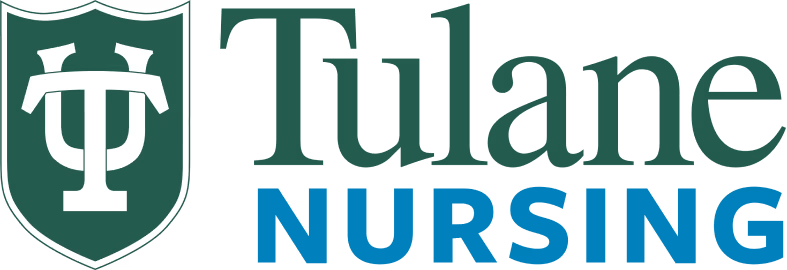Become a Nurse with a Biology Degree in 6 Steps
Can you become a nurse with a biology degree? Yes, you can, and it may even expedite the process. Through an accelerated BSN program, your biology degree serves as the foundation on which you build nursing concepts. Upon graduation, you must pass the NCLEX before applying for a nursing license.

Feeling unsatisfied with your career path after establishing a major or career is common. Many people with a background in biology decide to become nurses because they want a more hands-on job or have the desire to help others. Nursing is a unique and exciting career offering great career prospects, dozens of areas for specialization, and a dynamic work environment where no two days are the same. However, can you become a nurse with a biology degree?
While a biology degree does not qualify you for a nursing license, it can still give you a head start in your nursing education. A biology degree serves as a solid foundation for a nursing career.
There is significant subject matter crossover between the two — nursing requires an understanding of biology and related sciences — and academic benefits to leveraging your biology degree. More biology college credits are likely to transfer to a nursing program than, for example, a Bachelor of Fine Arts. Biology students will also have an easier time understanding nursing concepts since much of it builds off concepts they’ve already learned.
At Tulane University, our accelerated Bachelor of Science in Nursing (aBSN) program can help fast-track your transition from a biology degree to nursing, allowing you to earn a Bachelor of Science in Nursing (BSN) in as few as 16 months.
Below is an exploration of how to become a nurse with a biology degree in six steps.
1. Find the Right Nursing Program
Many nursing programs can help you become a nurse, but finding the one that best suits your needs and goals is essential. As you research your options, remember that while a two-year Associate Degree in Nursing (ADN) and a four-year Bachelor of Science in Nursing (BSN) program qualify you for the nursing licensure exam, the scope of education is different.
A BSN program is more intensive than an ADN program and provides a comprehensive curriculum that further develops your clinical reasoning. BSN-educated nurses are also in higher demand for several reasons, one of which is the thoroughness of their education. A 2022 study published in Nursing Outlook revealed that a higher proportion of BSN-educated nurses in a clinical setting is connected to higher rates of positive patient outcomes.
A BSN also prepares you to pursue advanced degrees, such as a Master of Science in Nursing or Doctor of Nursing Practice. As you research nursing programs, consider your previous education experience, career goals, and program accreditation. It’s critical that your chosen program meets industry standards and qualifies you for licensure.

You should also decide whether you wish to earn an ADN or BSN. A BSN has many benefits over an ADN; however, returning to school for another four years is not ideal if you are a career changer or a transfer student. Fortunately, an accelerated BSN program helps you earn a BSN in less time than a typical nursing program by building off your college experience or non-nursing bachelor’s degree.
Accelerated Nursing Programs for Biology Majors
An accelerated BSN program builds off your previous academic experience while providing the same quality and breadth of education expected from a four-year nursing program. With three start dates per year and no waitlist, Tulane University’s new aBSN program in New Orleans can help you earn your BSN in as few as 16 months.
If you have a non-nursing bachelor’s degree, such as a biology degree, or at least 60 non-nursing college credits, you may meet the program requirements and can start the transition from a biology degree to nursing.
2. Contact an Admissions Counselor
After considering your career goals and finding a nursing program that suits your needs, the next step is to contact an admissions counselor. At Tulane, all applicants are assigned a dedicated admissions counselor to guide them through each step of the admissions process.
After submitting the contact form, an admissions counselor will reach out. While the first conversation is not an admissions interview, preparing would still be beneficial. You will be asked about your reasons for becoming a nurse, so it helps to have an answer ready. Maybe you’ve had meaningful experiences with nurses in the past, or simply feel called to help others. Your reason doesn’t have to be profound, just genuine.
Your admissions counselor will also discuss eligibility. For an accurate discussion, it’s helpful to have your transcripts — official or unofficial — on hand. If you meet the basic requirements, the next step is to discuss completing the prerequisites.
3. Develop a Plan to Meet Prerequisites
Prerequisite courses are required because they ensure all aBSN students start on the same level. Every nursing program has different prerequisite courses, so it’s imperative that you carefully review the requirements.
At Tulane, our admissions counselors work with applicants to identify which previous college courses transfer and which do not. Together, you will create an academic plan that helps you meet prerequisite course requirements in time for your target start date.

The prerequisites for Tulane’s aBSN program are as follows:
- Nutrition
- Math (Statistics)
- Developmental Psychology
- Anatomy & Physiology 1 & 2
- Microbiology
- Chemistry
This is where transitioning from a BS in Biology to nursing is beneficial. You likely have already taken courses in anatomy and physiology, microbiology and others. If they transfer, you will take fewer prerequisite courses than applicants with no science degree.
All Tulane aBSN applicants must complete prerequisite courses with a “C” grade or higher and a cumulative nursing major prerequisite GPA of 3.0 before applying. However, conditional admission may be granted if the applicant meets all admissions requirements and has no more than three prerequisite courses with only one science course in progress.
4. Apply to the aBSN Program
After completing the prerequisite requirements, the next step is to finalize and submit your nursing program application. Additional materials, such as entrance exams, essays, and video submissions, may be needed. At Tulane, applications must include a video submission and meet the technical standards to complete the application package.
As you finalize your application, carefully review for errors and ensure all required materials are included. Your admissions counselor can answer your questions, provide feedback, and assist you throughout the process. Once the application is ready, you can submit it.

5. Earn your BSN
After navigating the nursing program admissions process, the next phase is to dive into schoolwork. Tulane’s aBSN program’s nursing curriculum is designed with the Next Generation National Council Licensure Examination for Registered Nurses (NCLEX-RN) in mind, preparing you for the nursing licensure exam from day one.
Our online nursing coursework establishes core nursing concepts while offering the flexibility of online learning. You can complete coursework when and where it’s most convenient, provided you continue to meet deadlines. You will then build on these concepts during nursing skills labs, which provide a safe place to practice skills such as wound care and medication management using interactive patient manikins.
You will then apply these concepts and skills during simulation experiences, where you work as a team with other students and enact simulated clinical scenarios. This is an opportunity to develop and practice your clinical judgment, instilling the confidence needed for clinical rotations.
Clinicals are the final component of your education. During clinicals, students provide direct patient care in real clinical settings while under the supervision of the professional nursing staff and preceptors. This is your first chance to experience working as a nurse and start building your professional network. You will complete clinicals in various nursing departments and specialties, such as medical-surgical, mental health, obstetrics, and more.
6. Pass the NCLEX-RN and Earn a Nursing License
After graduating from a nursing program, you’re ready for the final step before becoming a nurse: passing the NCLEX-RN and earning a nursing license. The NCLEX-RN is designed to test your clinical judgment and decision-making as they may apply to real-world care situations. To pass, you must lean on the knowledge gained from the program and experiences in navigating a healthcare setting and providing ethical patient care.
It's best practice to prepare for the NCLEX at the start of nursing school. Answering practice questions and taking practice exams will familiarize you with the question style. As you progress through the program and near the end, increase the frequency with which you take practice exams so you can identify areas requiring more study.
Once you graduate from the program, dedicate the weeks leading to the exam to full-time study. You should be well-prepared if you have been studying for the NCLEX since starting the nursing program.

Ensure you receive a full night’s rest, then on exam day, eat a nutritious breakfast and arrive at the test-taking site early. Dress comfortably to minimize distractions, and bring layers in case the testing site is cold. Be sure to have proper identification on hand so you can sign in. After passing the NCLEX, you can apply for a nursing license from your state board of nursing.
Turn Your Biology Degree into a Career in Nursing
So, can you become a nurse with a biology degree? The answer is yes, and it may even pave a more straightforward path ahead than other degrees. At Tulane, our aBSN program can help you meet your goals and transition from a bio major to nursing or pivot your career in as few as 16 months. Our curriculum is practitioner-informed and designed to foster the next community-oriented leaders in health care.
If you are ready to leverage your biology degree to start a nursing career, contact our admissions counselors today. Once you submit a contact form, we will be in touch to help you navigate the journey and support you along the way.

